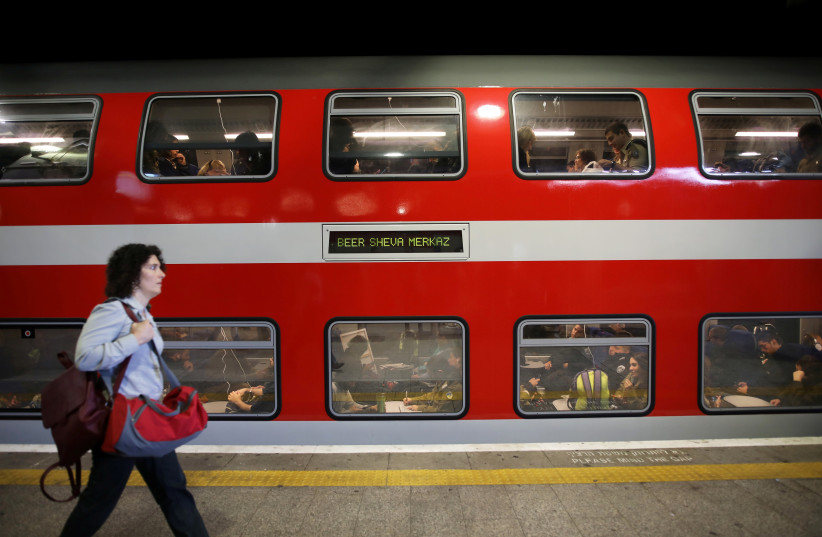Less than half of bus stops in Israel are suited for people with disabilities, according to a report released by the State Comptroller on Tuesday. The report revealed that public transportation still has many accessibility issues for people with disabilities.
Out of 27,000 bus stops, 13,500 stops with inter-city services and 3,500 city line stops are not accessible. Out of 80 cities that were surveyed, 37.5% have not made all their bus stops accessible, with 22.5% standing at a rate lower than 85%.
Despite the fact that the law of equality for people with disabilities was passed in 1998, it has not yet been made compulsory to make inter-city transportation handicapped-accessible. Likewise, accessible announcing systems on the buses are not fully functional on all buses despite it being mandatory by law.
The report revealed that according to the Transportation Ministry’s assessment, the cost of making inter-city transport accessible would be NIS 3.9 billion a year, but this estimate refers only to full accessibility, and an estimate was not given for partial accessibility such as only on certain lines, during certain hours or with prior notice.
Regarding accessible city lines, the report found that improvement was required in a number of areas: encouraging the bus drivers to assist people with disabilities in a respectful manner; using the means of accessibility like stopping close to the pavement, using the ramp, securing wheelchairs before driving and use of announcement systems; providing answers and solutions for complaints regarding accessibility on public transportation and lowering the fare for carers of people with disabilities. By the time the report was completed, there was no plan to improve these points, and properly training drivers did not come up at all in the Transportation Ministry’s reports.

In train stations, the report found that some platforms are not at the same height as the train. This makes it difficult to board and disembark for people who need wheelchairs or other means to help them walk. The report also surveyed eight train stations for sensory accessibility in the elevators, tickets booths and public spaces. While six of the stations were found to be fully accessible, the Ashdod Ad Halom and Tel Aviv University stations did not have announcements in all their elevators, which makes it difficult for blind people to find their way.
The last item in the report was accessible taxis, and it revealed that there are only 875 accessible taxis operating around the country despite the fact that the government granted 1,000 licenses to accessible taxis. This means that there is less than one taxi for every 1,600 people compared to one for every 340 people without disabilities.
In practice, the number of available taxis is even lower because many drivers with accessible taxis use their bigger vehicles to transport large groups of people rather than keep them available for the people for whom they were intended. This is made possible by the fact that the Transportation Ministry grants licenses without any required criteria and doesn’t hold the drivers to a contract that ensures they supply the service they are licensed for.
The failings in the accessible public transportation system are problematic for hundreds of thousands of people with varying disabilities ranging from physical to sensory to mental. These people rely on public transport to get around, but they need accessibility to make it possible.
“Unfortunately, the report speaks for itself,” said Access Israel founder Yuval Wagner.
“When put to the test, we see that public transport in Israel is not accessible. There’s no doubt that the Transportation Ministry invests billions of shekels in public transport but at the same time, does not invest in making fully accessible services to people with disabilities.
“Access Israel is working on the matter with the Transportation Ministry, but unfortunately, to this day, there is a will in the ministry, but there is no plan of action.
“In Israel of 2021, they want to advance public transport but not for the disabled. The sad result is that hundreds of thousands of Israelis are harmed by this policy and don’t get to enjoy the use of accessible public transport in Israel.
“I encourage the Transportation Minister [Merav Michaeli] to take this matter into her personal care, draw up a multi-annual work plan and we will help in any way necessary.”
